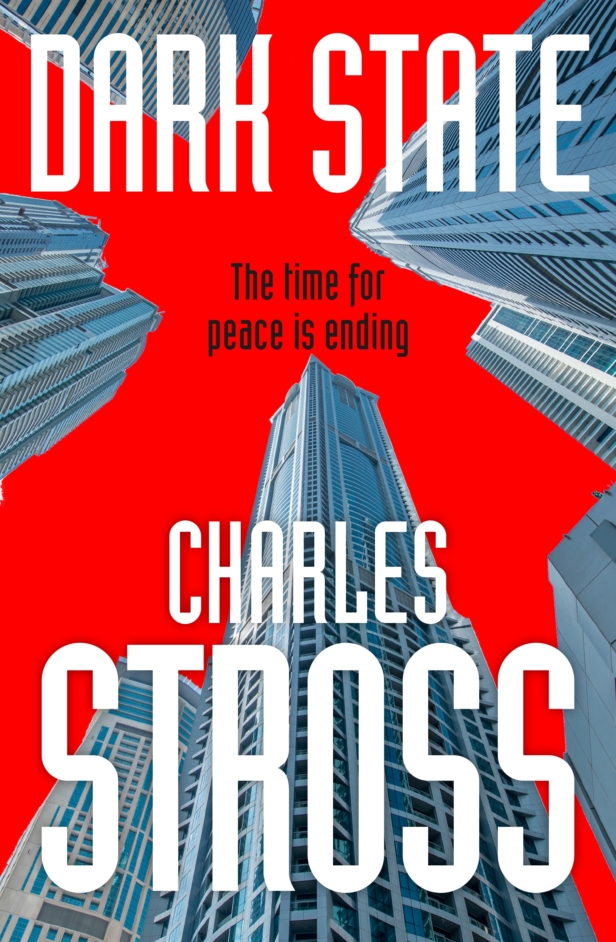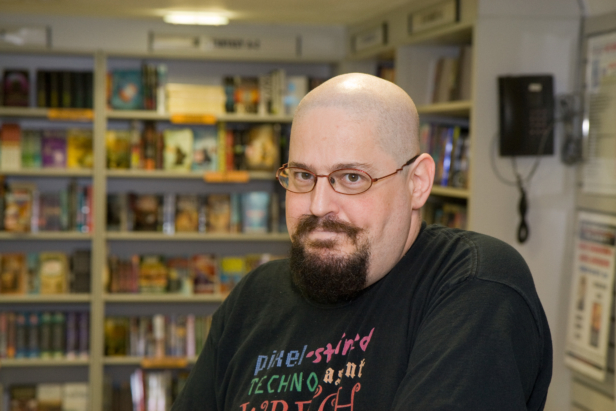- Cultivate a thick skin
Politics is ubiquitous, and what seems personal to us may be political to other people. It’s almost impossible to write fiction without it embodying your own outlook on life: and when we use fiction to make political points — to advocate for some aspect of our outlook — it’s bound to run up against readers who disagree violently.
Life would be a lot more boring if everyone held the same opinions. And so would my email inbox. If you plan to write political fiction of any kind, expect to get feedback — and much of it will be unkind.
2. Paint an interesting picture.
Nobody enjoys being lectured, especially about politics, and that goes double in the middle of a novel. So I don’t write manifestos: I write science fiction stories set in imagined worlds, where politics has dictated a different historical path which my protagonists showcase. Questions like, “what if the British and French revolutions of the 17th and 18th centuries hadn’t happened, and democracy didn’t displace monarchism?” or “what if the post-9/11 anti-terrorism state continues to expand?” are boring in the abstract. But you can use them to provide a rich, complex stage backdrop for your protagonists — to show what life would be like in a near-future surveillance state, or a 21st century absolute monarchy — and your readers will think about your ideas.
3. Dystopias are easy to do badly.
A sad reality of genre fiction is that excitingly unpleasant settings make for fun stories. But many readers will approach anything you write at face value, and see depictions of dystopian outcomes as advocacy — unless you place your protagonist in clear opposition to their society. Being drably realistic for a moment, there is a term for people like Katniss Everdeen who set themselves up as resistance fighters against an oppressive regime: we call them “casualties”.
The hidden currents of history are dictated by the movement of masses, although they’re often steered by extraordinary individuals who find themselves in the right place at the right time. There’s nothing wrong with a young adult yarn that pits a plucky heroine against a dystopian state that’s withstood multiple rebellions over the course of centuries — but it’s a lot more plausible if your protagonist has an army or, better yet, a balance sheet with which to buy support.
4. Politics is complicated.
To every political question there is at least one answer that is attractive, simple, obvious — and wrong. Equally: a solution to a political issue that works for me may well not work for you, and vice versa. That’s because we human beings are not identical interchangeable spheres of uniform density: we’re all different. That’s why political strife exists.
There are usually many answers to any given political question, and most of the time people who advocate for a given solution do so in good faith. First-past-the-post electoral systems tend to obscure the fine details by hiding the arguments behind a mask of party discipline, but it’s still there — and it breaks out in surprising places.
If you’re writing a protagonist who’s opposing an evil system, why not take a look at what’s going on behind the implacable facade? What do the supporters of the evil empire gain from it? Why do they put up with each other? Why do they remain loyal? An evil empire that finds a way to reward its supporters is always more interesting that one that just squats there enigmatically, emanating evil.
5. Readers don’t.
An iron law of writing — all writing — is that whatever you say in print, about 20% of your audience will come to it with such bizarre misconceptions about your book that they can’t make sense of it. They will read a work of literature and fail to understand what they’re looking at, and it will make them feel stupid, and they will get angry. “I picked up this novel (1984) because a Goodreads reviewer says there’s a romance in it between Julia and Winston Smith, but this book is TERRIBLE, there’s no happy ever after!”
Fiction (especially genre fiction) is approached as entertainment, not warranting deep interrogation, so they assume that your protagonist is good, their opponents are bad, and any cause they espouse is justified. (For example: Steampunk, absent a feminist sensibility on the part of the author, often deliberately ignores the massacres of indigenous people going on elsewhere in the empire, or the racism, monarchism, and corruption the system relies on — the reader’s focus is directed at the pretty frocks and zeppelins instead.) Bad guys always have the best songs and uniforms. And bad readers always assume that the beautiful are good.
Reader, you are not writing for these people: you’re writing for the other 80%.
DARK STATE is published by Tor UK on 11 January, and is the thrilling political SF sequel in the brand new Empire Games trilogy.

